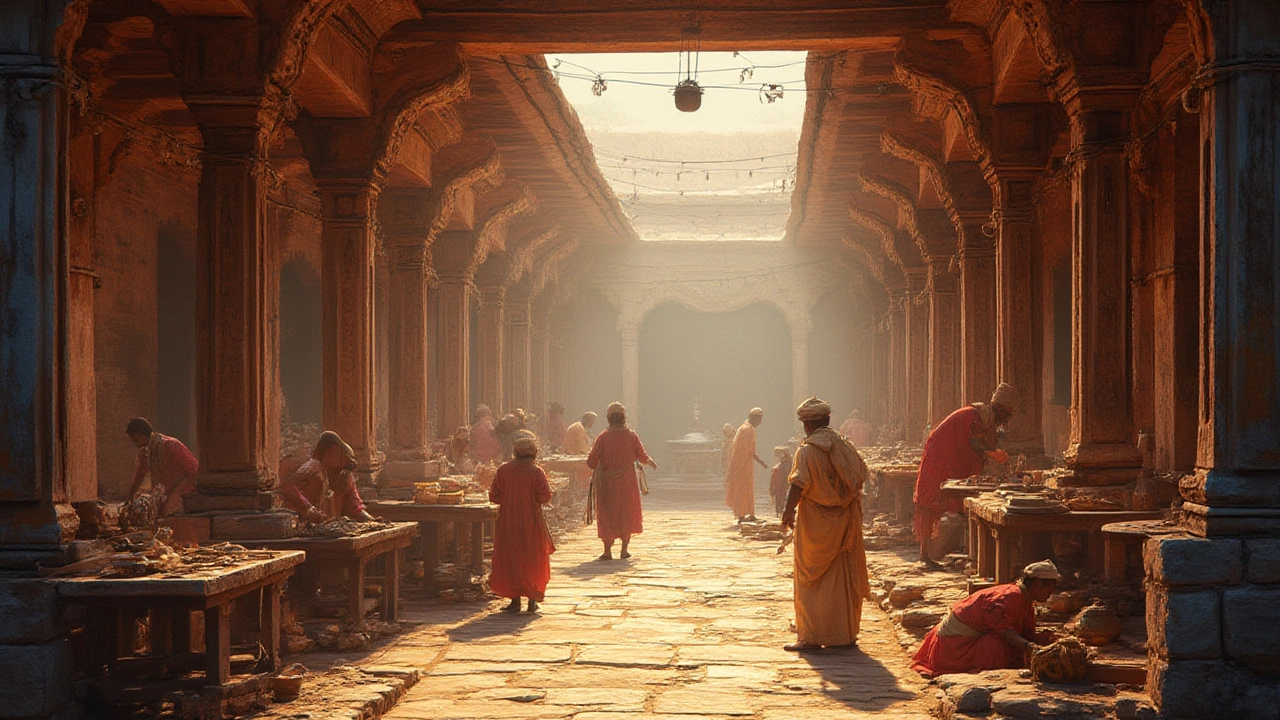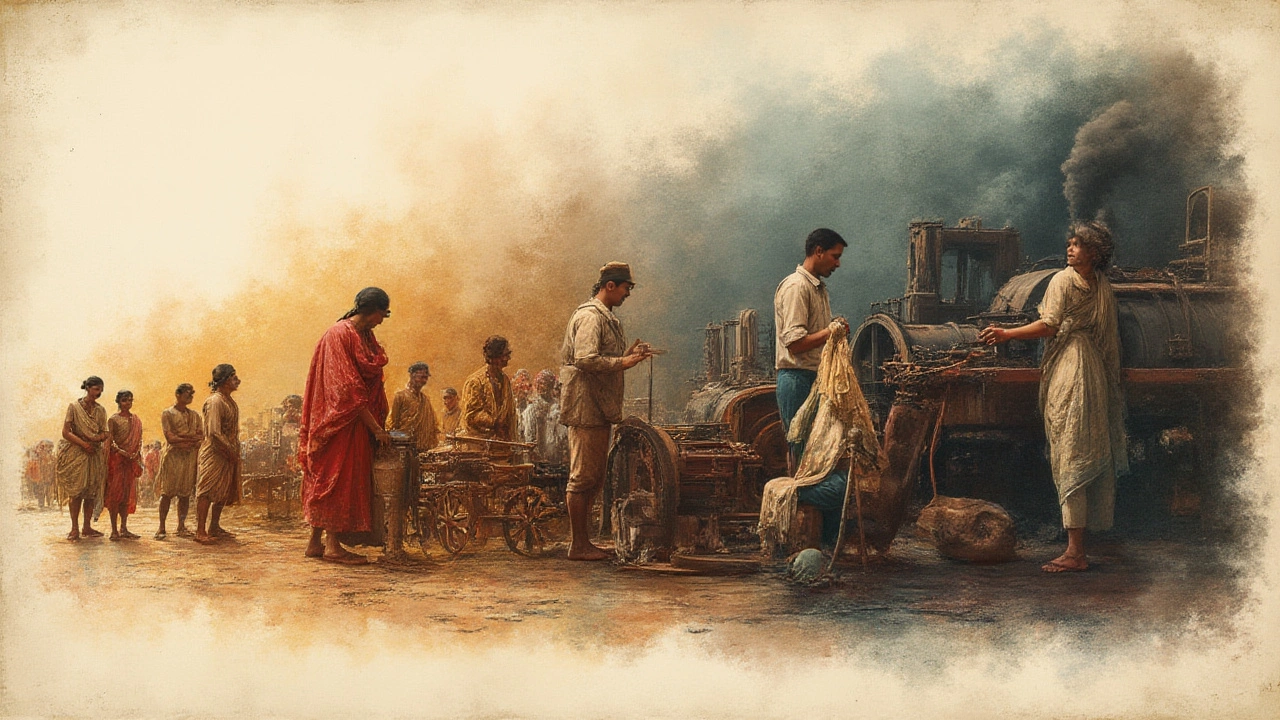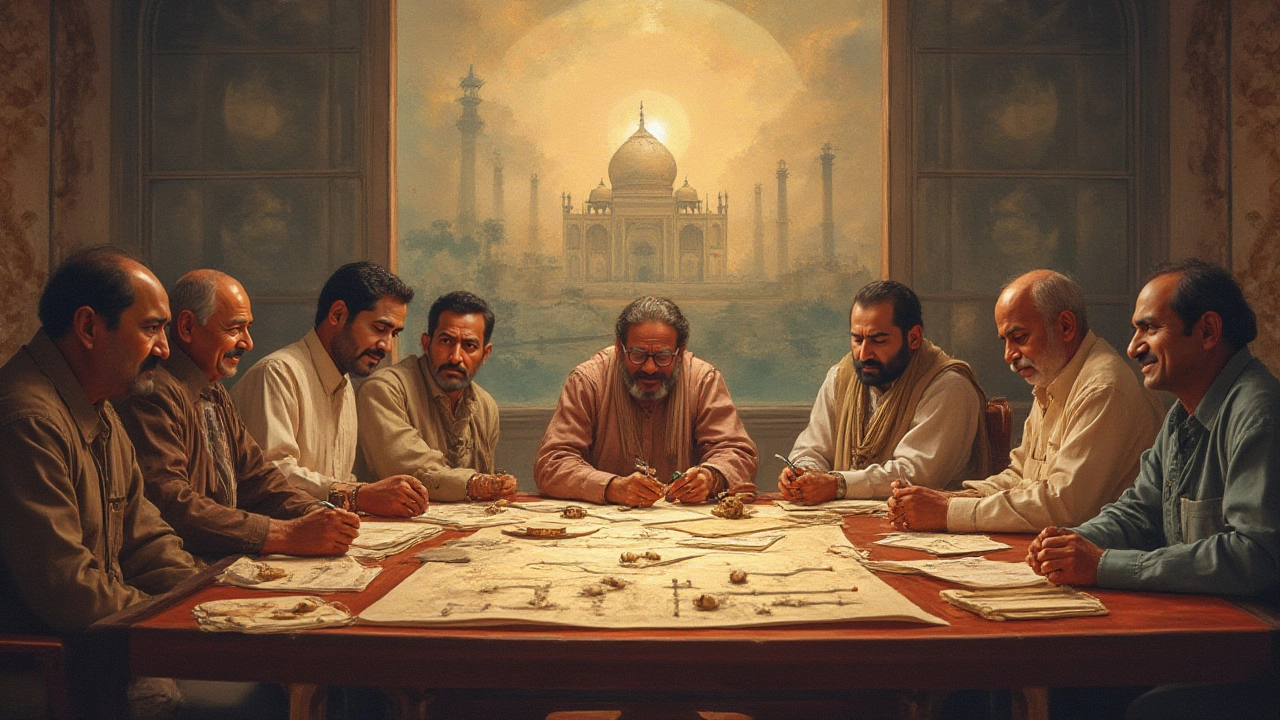Unveiling the World's Oldest Manufacturing Company: History, Legacy, and Secrets

Ever heard of a company that’s older than your country? The kind of business that’s been around since before electricity, cars, or even the discovery of America? Most firms struggle to make it through a quarter-century, but the oldest manufacturing company has been ticking along for over a millennium—outlasting empires, plagues, wars, and every technological revolution you can think of. Their story isn’t just about endurance—it’s a true masterclass in how tradition and adaptability can forge an unstoppable legacy. Ready to peel back the centuries and see how it’s possible?
Tracing the Roots: Swords, Shrines, and Survival
If you thought 100 years was a long time for a business to survive, try 1,400 years. The current world record-holder, according to the Guinness World Records, is Kongō Gumi, a Japanese construction company founded in 578 AD. That’s right—Kongō Gumi began work while the Roman Empire was still standing. The company’s specialty was building Buddhist temples, including the iconic Shitennō-ji Temple in Osaka, commissioned by Prince Shōtoku. Kongō Gumi remained a family-run business—passed down through 40 generations—longer than some civilizations lasted. For over a thousand years, their precision woodwork, carpentry secrets, and absolute dedication to quality kept royal and religious clients coming back generation after generation.
Why Japan? The country actually hosts an extraordinary number of old companies. Research by Tokyo Shoko Research found that in 2021, Japan had over 33,000 businesses operating for over a century—and at least 3,100 older than two centuries. The country’s culture of loyalty, respect for heritage, and family tradition explains why so many ancient companies survive there. Multiple government and academic surveys have reached similar findings over the years, making Japan the undisputed champion of business longevity.
But Kongō Gumi wasn’t making swords or ceramics—they built sacred structures. Their survival relied on something more powerful than just economic success. They were entwined with religious traditions, which gave their work a near-mythical sense of duty and respect. When a company is seen as a guardian of something sacred, clients tend to stick around. According to Professor Jeffrey Fear of the University of Glasgow, “Japanese long-lived companies emphasize the role they play in the community and their responsibility to carry on traditions, which is a big part of why they keep going.”
Kongō Gumi’s story is wild for another reason: they didn’t just coast along, doing the same thing for centuries. In the Meiji era (late 1800s), when Buddhism was suppressed, they branched out—making coffins for the military. Their ability to pivot helped them survive the lean times. The lesson? Even a centuries-old business can’t just do what it’s always done. Adaptation—without losing sight of your roots—is the name of the game.
But, to keep things accurate and honest, Kongō Gumi did lose its independent streak in 2006, after some risky real estate investments and economic pressures forced them into becoming a subsidiary of Takamatsu Construction Group. Here’s the twist—unlike many companies that blink out after a crisis, the Kongō Gumi name still lives on, as does its know-how, guiding restoration projects for historic temples. The soul of the brand continues, guided by traditions written centuries ago.
Want to wrap your brain around how long Kongō Gumi has lasted? Look at this table comparing global business longevity:
| Company | Country | Founded | Industry |
|---|---|---|---|
| Kongō Gumi | Japan | 578 AD | Construction |
| Nishiyama Onsen Keiunkan | Japan | 705 AD | Hotel |
| Stiftskeller St. Peter | Austria | 803 AD | Restaurant |
| Sean's Bar | Ireland | 900 AD | Bar |
| Genda Shigyō | Japan | 771 AD | Paper Goods |
See the pattern? Most of the oldest companies are Japanese, deeply woven into tradition-rich industries. It’s not just about sturdy buildings or beautiful swords. The hidden superpower is relevance—not to trends, but to the fabric of society itself.
So are there companies even older hiding somewhere, maybe quietly forging blades in a mountain village? Not likely. Although legendary swordsmithing families in Japan and ancient breweries in Germany claim roots going far back, none match Kongō Gumi’s evidence or traceable records.
“Businesses that endure for centuries do so by embedding themselves within their communities, becoming as much a part of local identity as the landscape itself.” — Mitsuo Matsushita, professor emeritus, University of Tokyo
So what’s the secret sauce? It’s a cocktail of family leadership, adaptability, community feeling, and a reputation built over centuries. Without that mixture, most companies end up as trivia questions rather than living history.

Manufacturing Through the Ages: From Ancient Workshops to Modern Giants
Let’s jump into what makes a company last in manufacturing, where the odds are always stacked against you. In ancient times, manufacturing was less about assembly lines and more about master craftsmen teaching secrets to their sons. Skills were closely guarded—if you made the best swords or ceramics, your business could become legendary. But you had to survive wars, fires, and power struggles. Even in Europe, medieval guilds were the backbone of business longevity, but almost none remain as intact family firms today.
Interesting enough, China and the Middle East have powerful claims to very old businesses, too. Some Chinese family-run pharmacies and vinegar makers go back nearly a thousand years. Yet, dynasties and revolutions often meant a reset—new laws, new rulers, and sometimes forced shutdowns. Few ancient businesses there survived as a continuing lineage like Japan’s oldest manufacturing firms did.
Back in Japan, swordsmithing houses like the Fujiwara clan date to the Heian period (over 1,000 years ago), but their histories blend folklore and fact. Meanwhile, sake brewing—one of Japan’s oldest continuing industries—is still going strong, with Gekkeikan Sake Company tracing its history to 1637. Even so, that’s nearly 1,100 years younger than Kongō Gumi.
Europe hasn’t been left behind completely. Take Fonderia Pontificia Marinelli, an Italian foundry making church bells since 1040 AD, or Château de Goulaine in France—claimed to have been making wine continuously for almost 1,000 years. The difference? These businesses, while ancient, didn’t face the same unbroken family dynasties as their Japanese counterparts. Wars and land reforms often shattered continuity. Still, it’s amazing how some survive by carving out fiercely loyal customer bases, much like their Japanese cousins.
Fast-forward to the present and the landscape looks wildly different. Globalization, digital tech, and disruptive new competitors make every industry more volatile. The average lifespan of a Fortune 500 company is now under 18 years. Yet, lessons from the ancients still apply. If you want to build something that lasts, even in today’s world, certain rules are timeless:
- Live and breathe your brand’s core promise—not just for the balance sheets, but for your community.
- Train new talent inside the company culture. Passing down skills and values can outlast any single technology or product cycle.
- Stay open to change—pivot when customers or markets shift, but don’t abandon the DNA that makes you special.
Hard to do in practice, right? Of course. But companies that get this right, whether they’re 10 years old or 1,000, end up written into the history books—or at least, into industry legends.

Lessons Modern Businesses Can Steal from Ancient Survivors
If Kongō Gumi could talk, it’d probably have plenty to say about dealing with crises—plagues, samurai wars, economic crashes. You get the idea. Sure, most CEOs today won’t face marauding warlords, but the essence of business survival rests on some universal truths.
First up: don’t treat change like an enemy. This ancient construction company could have gone extinct multiple times if it refused to adapt. When temple-building slowed down, Kongō Gumi added new services. That’s a move any modern business should file under “critical strategies.” Clinging to the past alone is a shortcut to the corporate graveyard. Instead, nurture your roots, but reach out to new opportunities as times evolve.
Second, bake your values into your brand’s DNA. The companies that survive longest aren’t just profit machines—they mean something. Whether it’s quality, service, or tradition, the thing your team truly believes in must shine through every product, every handshake. If you’re a manufacturer today, how do you treat your workers? What story are you leaving in the community? These small things pile up into a reputation money alone can’t buy.
Don’t overlook the family factor, even if you’re not literally passing the business from father to son. Having clear succession plans, strong leadership training, and a sense of belonging keep your team steady during crisis. Businesses get thrown off course when the next generation either isn’t prepared or doesn’t care. If continuity is your goal, leadership must always be a living, breathing part of your agenda, not a dusty file marked "for emergencies only."
Look at how transparency helped Kongō Gumi—detailed family records, clear financials, and open communication created stability. Every member knew the stakes and their role. Fast-forward to today, and this means open company culture, honest leadership, and investing in people who act like long-term stewards rather than short-term mercenaries.
Ever noticed how the world’s oldest companies love their core craft? They still hammer out handmade items, restore ancient buildings, or brew sake using centuries-old yeast. Leaning into what made them special kept them unique in a busy market full of copycats and mass producers. For anyone running a business now, focusing on your unique asset—your “signature,” so to speak—isn’t just for craft brands. It’s the lifeblood for surviving storms and sieges alike.
Want to build longevity into your company DNA? Here are a few real-world tips:
- Take care of your brand legend—the story people tell about you will outlast any product you sell.
- Value your people and pass on your skills; employees who feel trusted become loyal guardians, not just workers.
- Mix respect for tradition with curiosity for what’s next; honor your roots, but don’t get trapped in them.
- Embed yourself in your community—the towns that knew Kongō Gumi best fought to keep them alive, even in tough times. Strong local bonds can be a lifeline.
- Never bet it all on one horse; diversify, but not so much you lose what makes you "you."
The thread tying all these ideas together is simple: meaning and flexibility last. The oldest manufacturing company isn’t just a relic—it’s a proof-of-concept that durability in business comes from trust, transparency, and never forgetting the very human reason your business exists in the first place. And even if you’re starting from scratch today, there’s something strangely comforting—and inspiring—about knowing someone else kept going for 1,400 years. One thing’s for sure: legacy is never an accident.